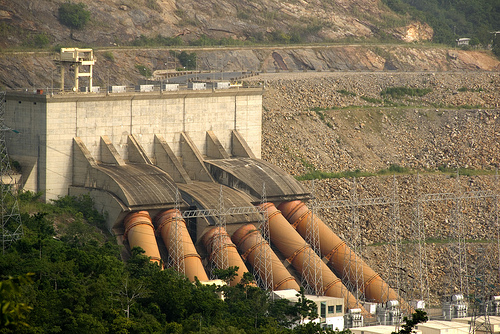West African states in the Niger River Basin are seeking to tackle climate risks and reduce poverty by constructing three hydropower dams in the next five years.
In late November, the council of ministers of the Niger Basin Authority (NBA), meeting in Cameroon’s capital Yaounde, endorsed an environmental and climate action plan for sustainable management of the scenic basin and its rich natural resources, which have come under threat from climate change.
The projects include a 102 megawatt hydropower dam at Fomi in Guinea, a 25 MW hydropower plant in Toussa, Mali, and the 565 MW Kandadji dam in Niger. These aim to boost hydroelectricity and irrigation, reduce desertification and flooding, and improve economic activities across the region.
“The West African region is facing urgent problems of food security, rural poverty and climate change that demand answers in the form of investment and infrastructure. We need to give a push to these three multipurpose hydropower dam projects as a sustainable solution that involves the region’s largest river,” NBA Executive Secretary Collins Ihekire said in a statement at the Yaounde gathering. The 2,600-mile Niger River is the principal waterway in Western Africa.
The decision to reinforce climate and environmental protection in the basin comes after a series of World Bank-funded studies to assess climate risk in the area.
The $384 million project will enable regulation of water levels in the Niger, benefiting countries downstream by making irrigation possible during the dry season, the NBA says.
Funding for the three dams is being provided primarily by the World Bank and the African Development Bank.
source: allfrica.com



